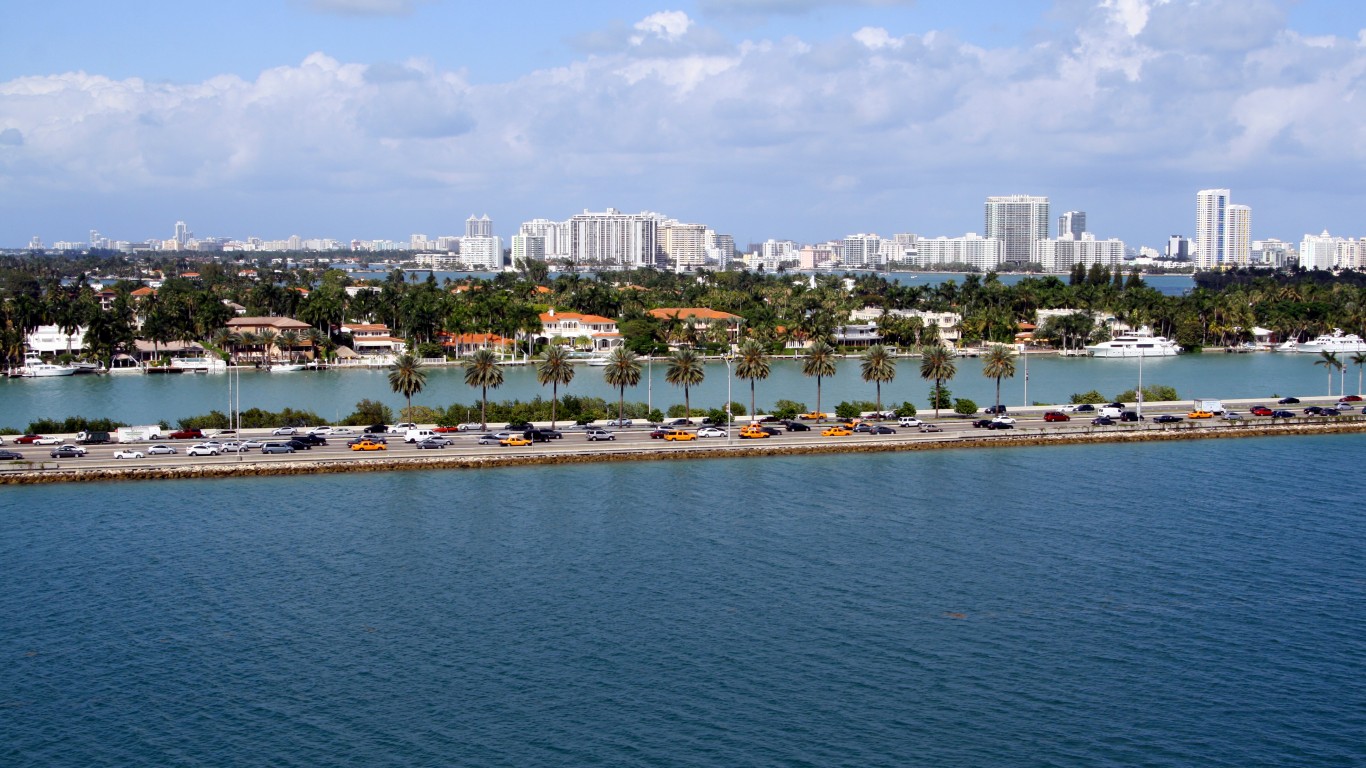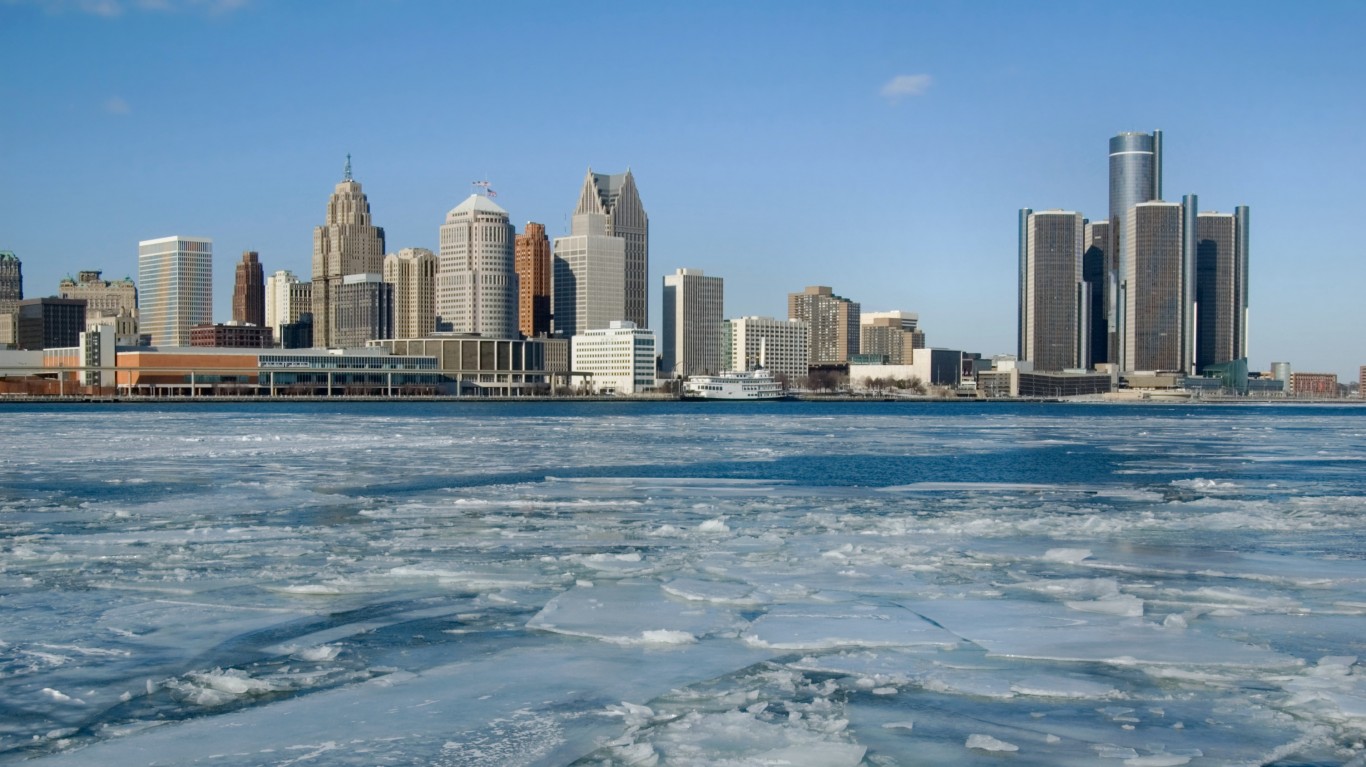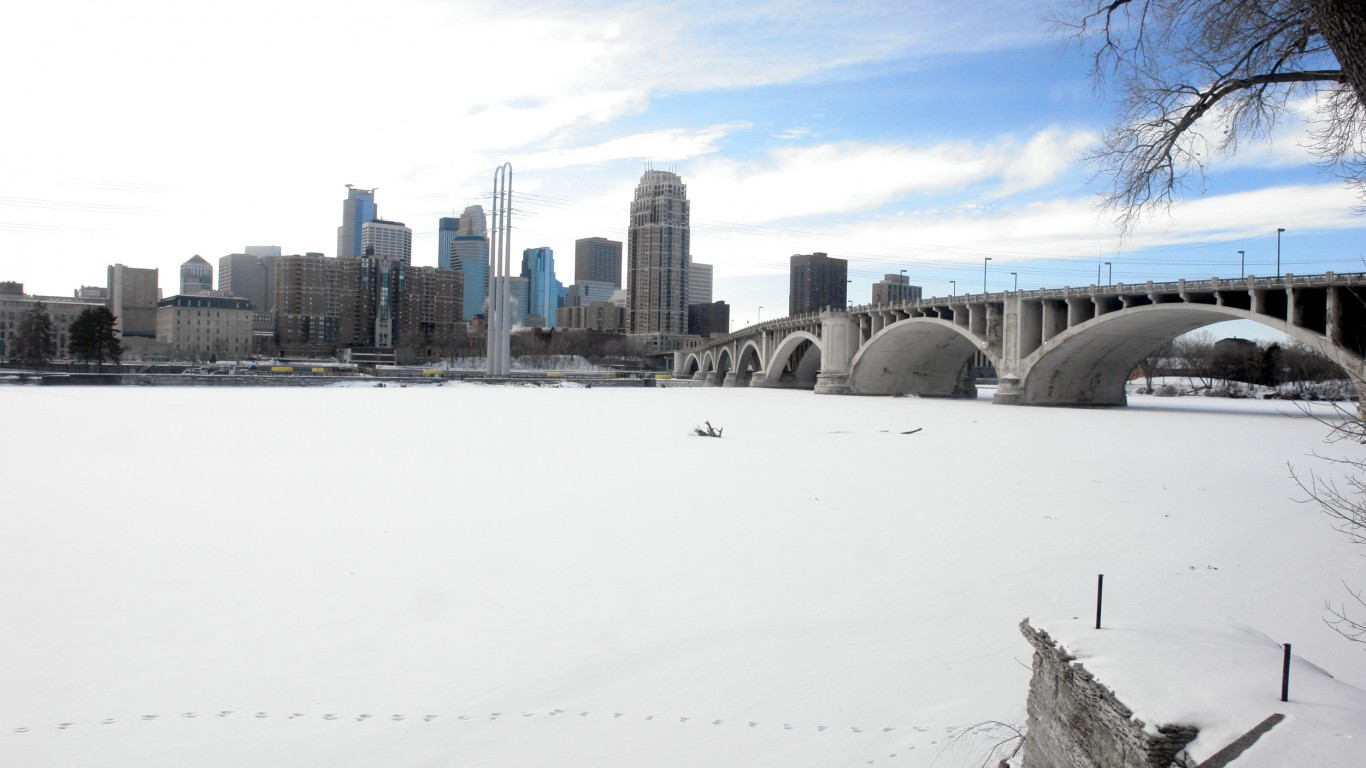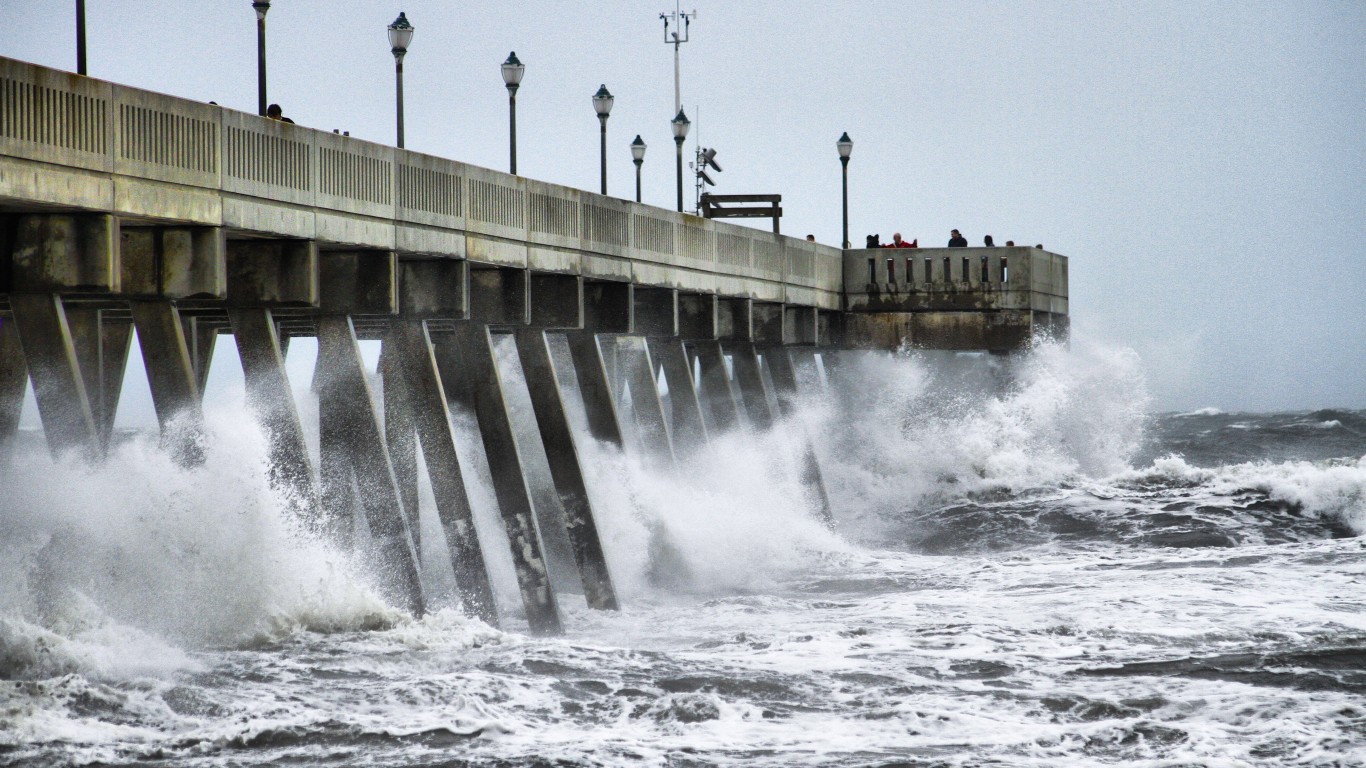
So far, 2021 has been a historic year for natural disasters in the United States. There were a record 18 weather and climate disasters costing more than $1 billion each in the first nine months of 2021, according to a report from National Oceanic and Atmospheric Association. Wildfires, severe storms, tornadoes, and extreme temperatures resulted in 538 deaths and $104.8 billion in damage nationwide from January through September — eclipsing totals from all of 2020.
Going forward, climate change will likely only continue to contribute to the increased frequency and severity of natural disasters, including hurricanes — the deadliest and most destructive classification of natural disaster threatening the United States. Over the past two decades, hurricanes have killed an average of over 300 Americans per year and resulted in overall damage totaling nearly $1 trillion.
Hurricanes that threaten the United States form in the North Atlantic Basin and pose a perennial risk to communities along the Gulf and Atlantic coasts. According to a recent report from CoreLogic — a property information, analytics, and data provider — nearly 8 million single-family homes are at risk of storm surge damage from hurricanes, and over 31 million homes are at risk of damage from hurricane winds nationwide. These risks are disproportionately shouldered by metropolitan areas along the Eastern Seaboard and along the Gulf of Mexico.
Using data from CoreLogic’s 2021 Hurricane Report, 24/7 Wall St. identified the 15 cities where hurricanes would cause the most damage. Metro areas are ranked by the number of single-family homes at risk of storm surge damage.
Over one third of the metro areas on this list are located in Florida. Another three are in Louisiana, and two are located in the Northeastern United States. Each of these places has faced the threat of major hurricane damage in recent decades — some have narrowly dodged the worst devastation, while others, like New Orleans in 2005, have not been so lucky. Here is a look at the before and after pictures of the worst hurricanes in American history.
Click here to see the cities where hurricanes would cause the most damage
To determine the cities where hurricanes could cause the most damage, 24/7 Wall St. reviewed data on hurricane risk in metropolitan areas along the Gulf and Atlantic coasts from CoreLogic’s 2021 Hurricane Report. CoreLogic is a property information, analytics, and data provider. Metropolitan areas were ranked based on the number of single-family residential structures less than four stories at moderate or greater risk of damage from storm surge flooding in the 2021 hurricane season. Supplemental data on the estimated reconstruction cost value of the at-risk homes also came from CoreLogic and includes the cost of materials, equipment, and labor that would result from reconstruction of these homes after 100% destruction. Data on population for each metro area came from the U.S. Census Bureau’s 2019 American Community Survey and are one-year estimates.
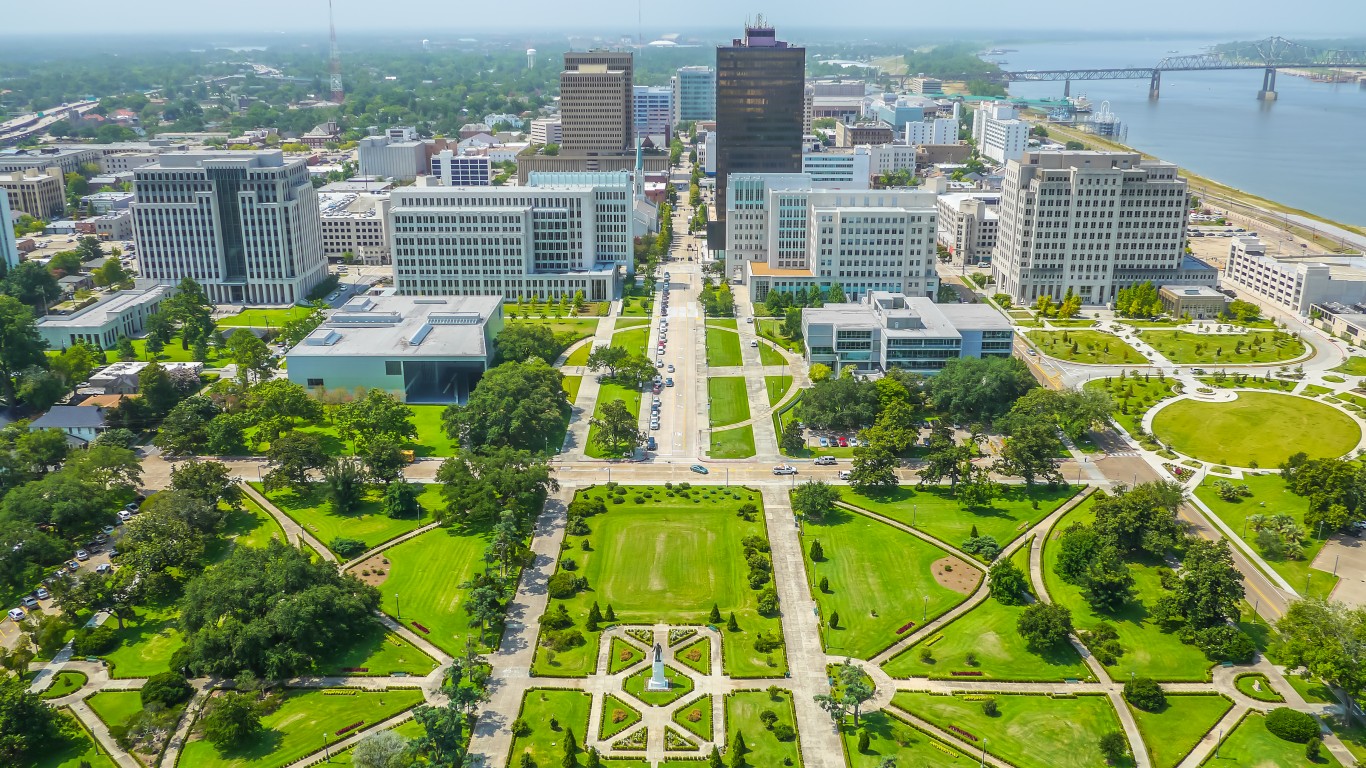
15. Baton Rouge, LA
> Homes at risk of storm surge: 136,951
> Reconstruction cost value of at-risk property: $34.3 billion
> Metro area population: 854,884
> Recent severe hurricane: Ida (2021)
Baton Rouge, Louisiana, is at risk of substantial hurricane damage. There are nearly 137,000 single-family homes in the metro area that face at least moderate risk of damage in the event of a storm surge, with repair costs estimated at $34.3 billion. Additionally, a total of nearly 300,000 local homes — with an estimated repair cost value of $71.1 billion — are at risk of hurricane wind damage.
In August 2021, coastal Louisiana, including parts of Baton Rouge, were slammed by Hurricane Ida. One of the most powerful storms to make landfall in the state’s history, Ida had sustained winds of 150 mph and left thousands in the state without power. Total monetary damage from Ida, including damaged property and lost productivity and tourism, is estimated to be around $95 billion.
[in-text-ad]

14. Lafayette, LA
> Homes at risk of storm surge: 146,254
> Reconstruction cost value of at-risk property: $33.4 billion
> Metro area population: 489,207
> Recent severe hurricane: Ida (2021)
Lafayette is one of three metro areas in Louisiana to rank among metros nationwide at risk of the most hurricane damage. There are over 146,000 single-family homes in the metro area at risk of storm surges, and nearly 180,000 homes exposed to potential damage from hurricane winds. Total reconstruction costs for potential damage is estimated at $33.4 billion for storm surges and $40.1 billion for high winds.
Hurricane Ida — one of the 10 costliest hurricanes to hit the United States in the last 20 years — affected many parts of Louisiana in 2021, though Lafayette was spared much of the worst destruction.
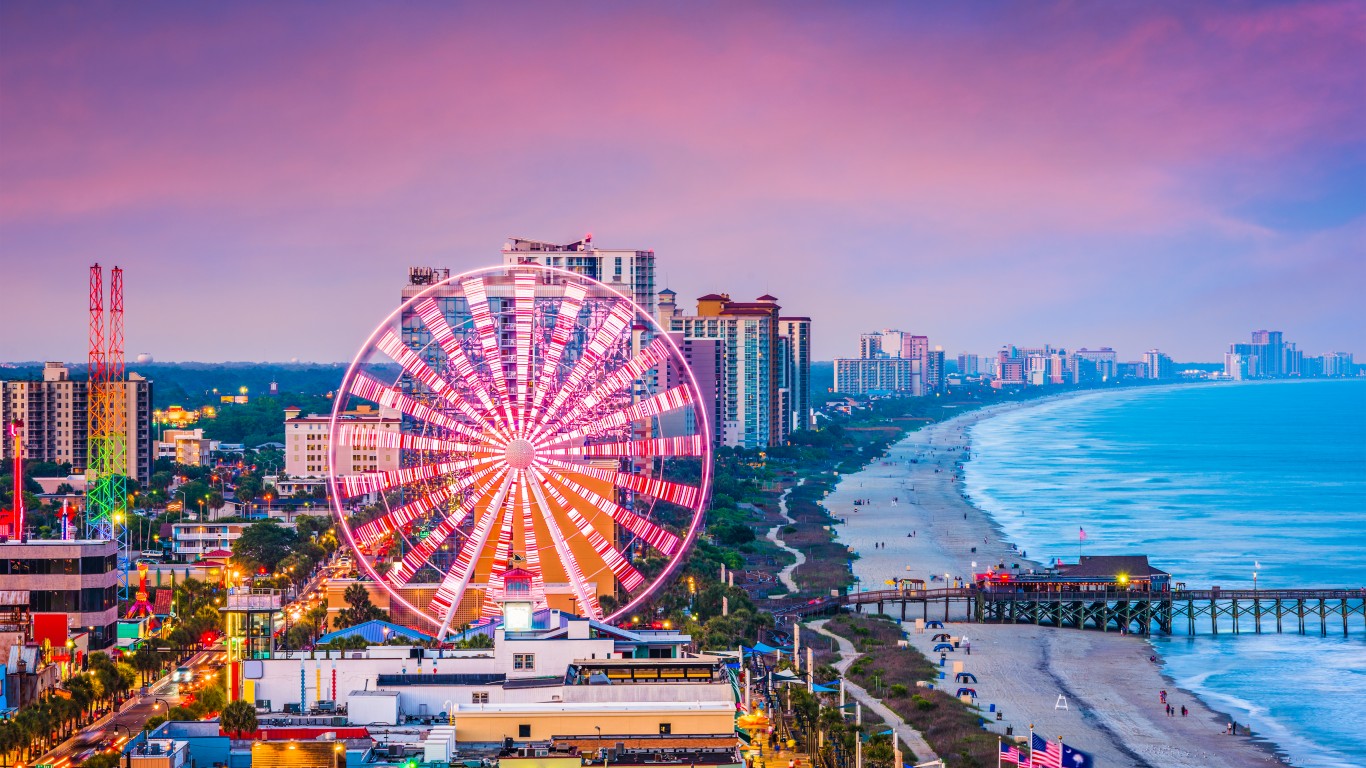
13. Myrtle Beach, SC
> Homes at risk of storm surge: 156,161
> Reconstruction cost value of at-risk property: $30.4 billion
> Metro area population: 496,901
> Recent severe hurricane: Hugo (1989)
Myrtle Beach, South Carolina, is one of two metro areas in the Carolinas where over 150,000 single-family homes are at moderate or severe risk of damage from a storm surge in the event of a powerful hurricane. Nearly half a million area homes are also at risk of damage from hurricane force winds. Flood damage in the area could result in an estimated $30.4 billion in damage to homes, while high winds pose a nearly $50 billion threat.
A hurricane or tropical storm passes within 50 miles of the Myrtle Beach metro area every other year, on average. Recent hurricanes that have impacted Myrtle Beach include Hurricane Florence in 2018, Hurricane Matthew in 2016, Hurricane Floyd in 1999, and Hurricane Hugo in 1989 — the latter of which damaged or destroyed 79,000 homes and resulted in 35 deaths across the state.
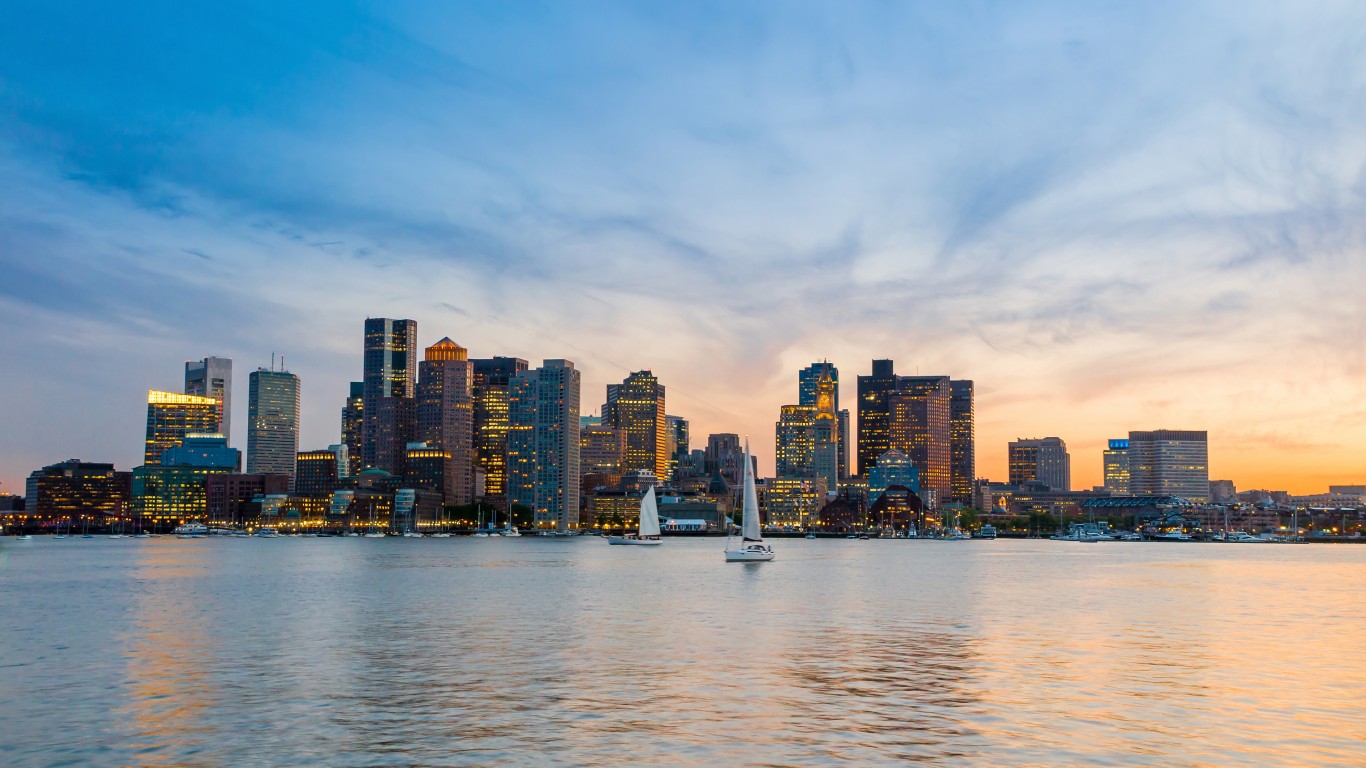
12. Boston, MA
> Homes at risk of storm surge: 159,245
> Reconstruction cost value of at-risk property: $54.0 billion
> Metro area population: 4,873,019
> Recent severe hurricane: Bob (1991)
Boston is one of only two metro areas in the Northeast to rank among the areas at risk of the most damage from hurricane storm surges in the nation. Over 159,000 single-family homes are at risk of storm surge damage in the Boston area. It would cost an estimated $54 billion to repair them. A total of 1.3 million area homes are at risk of hurricane wind damage.
In August 1991, Hurricane Bob, a Category 2 storm slammed into Massachusetts, affecting Boston and much of the broader New England region. Parts of Massachusetts reported storm surges of 10 to 15 feet. The storm caused a total of $39 million in damage in Massachusetts and $680 million across New England.
[in-text-ad-2]

11. Charleston, SC
> Homes at risk of storm surge: 184,563
> Reconstruction cost value of at-risk property: $46.8 billion
> Metro area population: 802,122
> Recent severe hurricane: Hugo (1989)
Located along South Carolina’s Atlantic coast, 184,563 single-family homes in the Charleston metro area are at risk of a storm surge in the event of a hurricane. Over a quarter million area homes are at risk of wind damage. Total replacement cost for residential homes alone in the area is estimated to be as high as $46.8 billion for storm surge damage and $65.2 billion for wind damage.
The most destructive hurricane to hit Charleston in recent memory was Hurricane Hugo, a Category 4 storm that made landfall in September 1989. The storm brought sustained winds of 135 mph and a 20 foot storm surge just north of Charleston. Total inflation-adjusted damages from the storm are estimated to be as high as $10 billion.
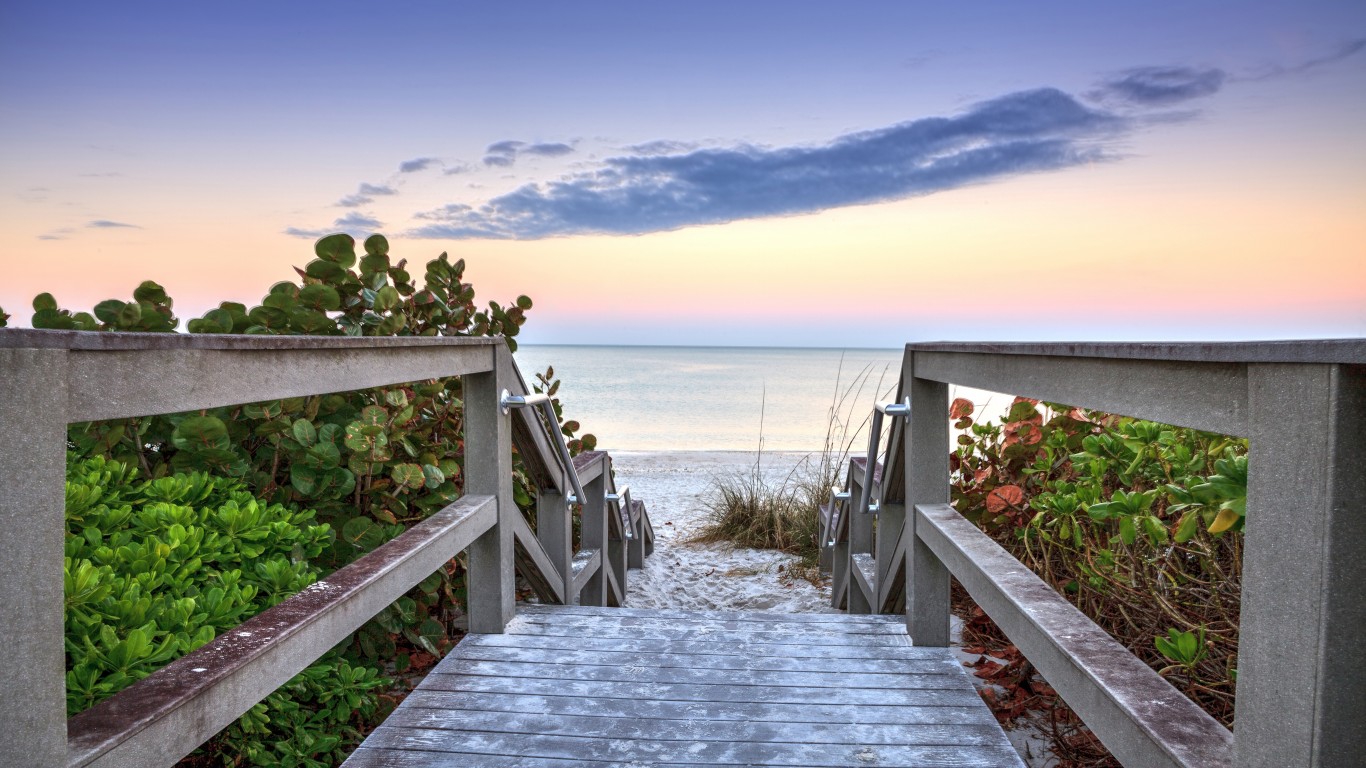
10. Naples, FL
> Homes at risk of storm surge: 197,265
> Reconstruction cost value of at-risk property: $44.5 billion
> Metro area population: 384,902
> Recent severe hurricane: Irma (2017)
Located on the Gulf Coast in southern Florida, Naples is at risk of considerable hurricane damage. Nearly 200,000 residential properties — with an estimated replacement value of $44.5 billion — in the Naples metro area are exposed to potential flooding damage from a storm surge. Nearly 385,000 local homes are at risk of wind damage in the event of a hurricane.
As recently as 2017, Naples was hit hard by Hurricane Irma. Though the metro area was spared the worst of the Category 3 storm, it caused widespread wind and flood damage and spilled tens of millions of gallons of sewage into homes, streets, and parks.
[in-text-ad]
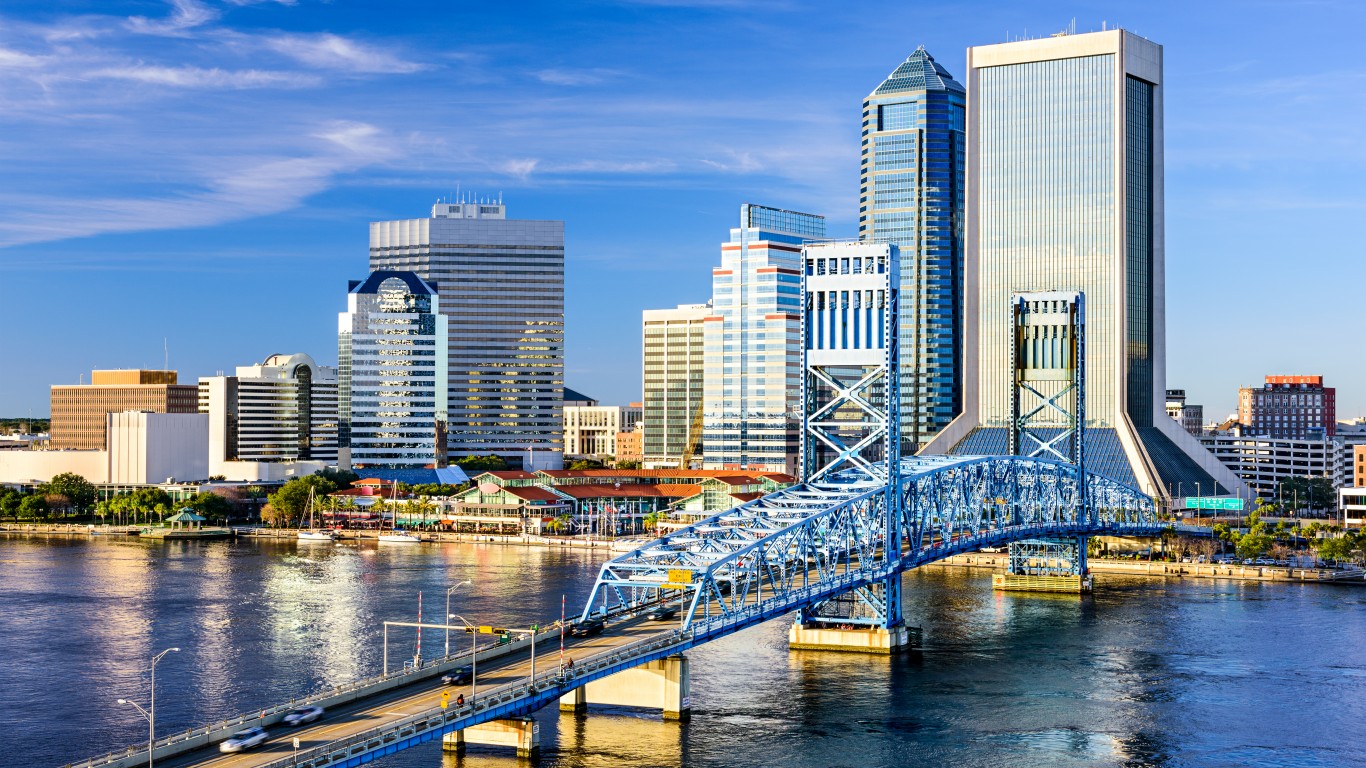
9. Jacksonville, FL
> Homes at risk of storm surge: 220,301
> Reconstruction cost value of at-risk property: $52.7 billion
> Metro area population: 1,559,514
> Recent severe hurricane: Irma (2017)
Jacksonville is the most populous city in Florida, and across the broader Jacksonville metro area, over 220,000 single family homes are at risk of storm surge damage in the event of a hurricane. In the event that all at-risk homes get damaged by a storm surge, replacement costs could hit $52.7 billion.
Jacksonville was one of many Florida communities affected by Hurricane Irma in 2017. Though the metro area was spared the high winds and resulting damage other parts of the state faced, the St. Johns River, which runs through the city, flooded, causing widespread damage throughout Jacksonville.
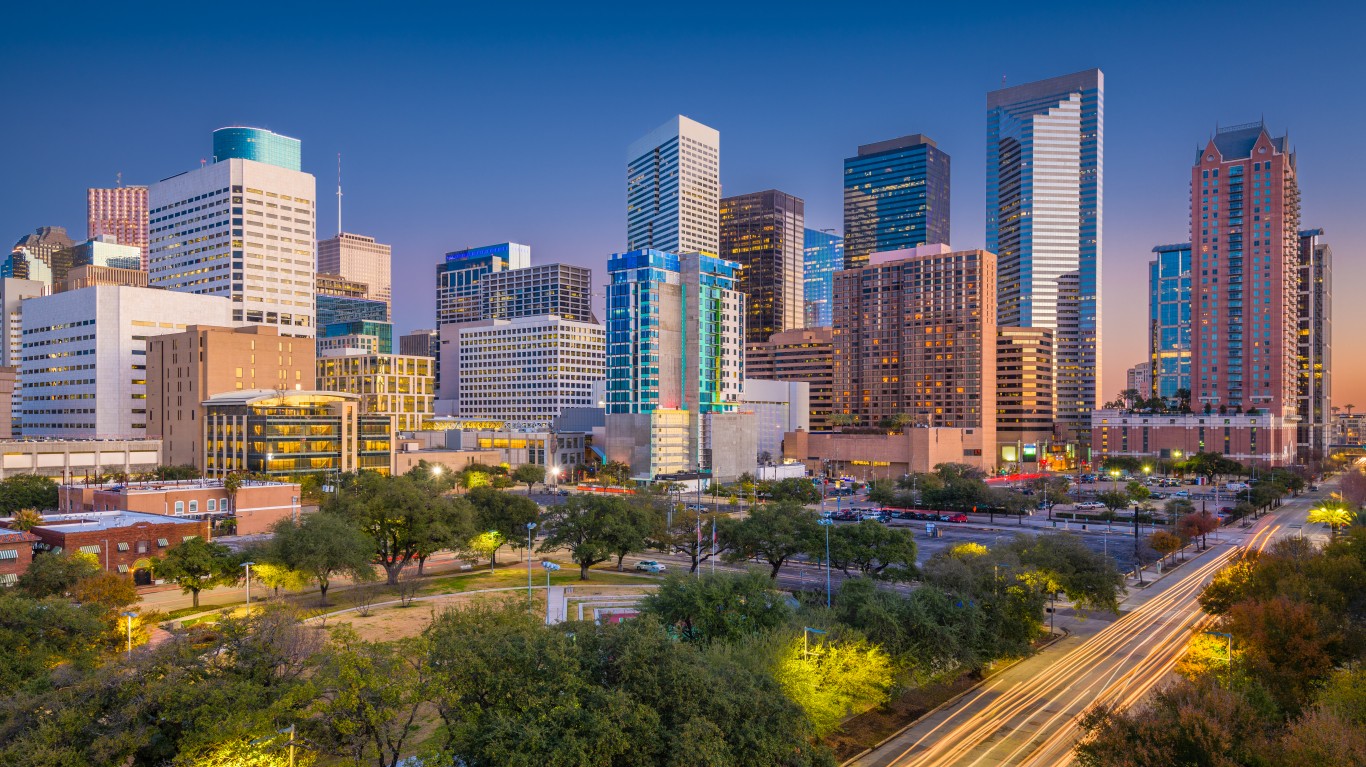
8. Houston, TX
> Homes at risk of storm surge: 261,103
> Reconstruction cost value of at-risk property: $56.9 billion
> Metro area population: 7,066,140
> Recent severe hurricane: Harvey (2017)
Located near the Gulf Coast in east Texas, Houston is at risk of considerable hurricane damage. Over 260,000 residential properties — with an estimated replacement value of $56.9 billion — in the Houston metro area are exposed to potential flooding damage from a storm surge. Nearly 2 million local homes are at risk of wind damage in the event of a hurricane, damage that could result in nearly half a trillion dollars in replacement costs.
Houston is one of several metro areas devastated by a hurricane in recent years. Hurricane Harvey made landfall as a Category 4 storm in August 2017 south of Houston. Though it eventually moved back out to sea, it brough torrential rainfall and devastating flooding to Houston and other parts of Harris County. Dumping over 27 trillion gallons of rain in Texas alone, Harvey led to over 100 deaths and caused an estimated $125 billion in damage, making it the second most costly hurricane to the United States in over 100 years.
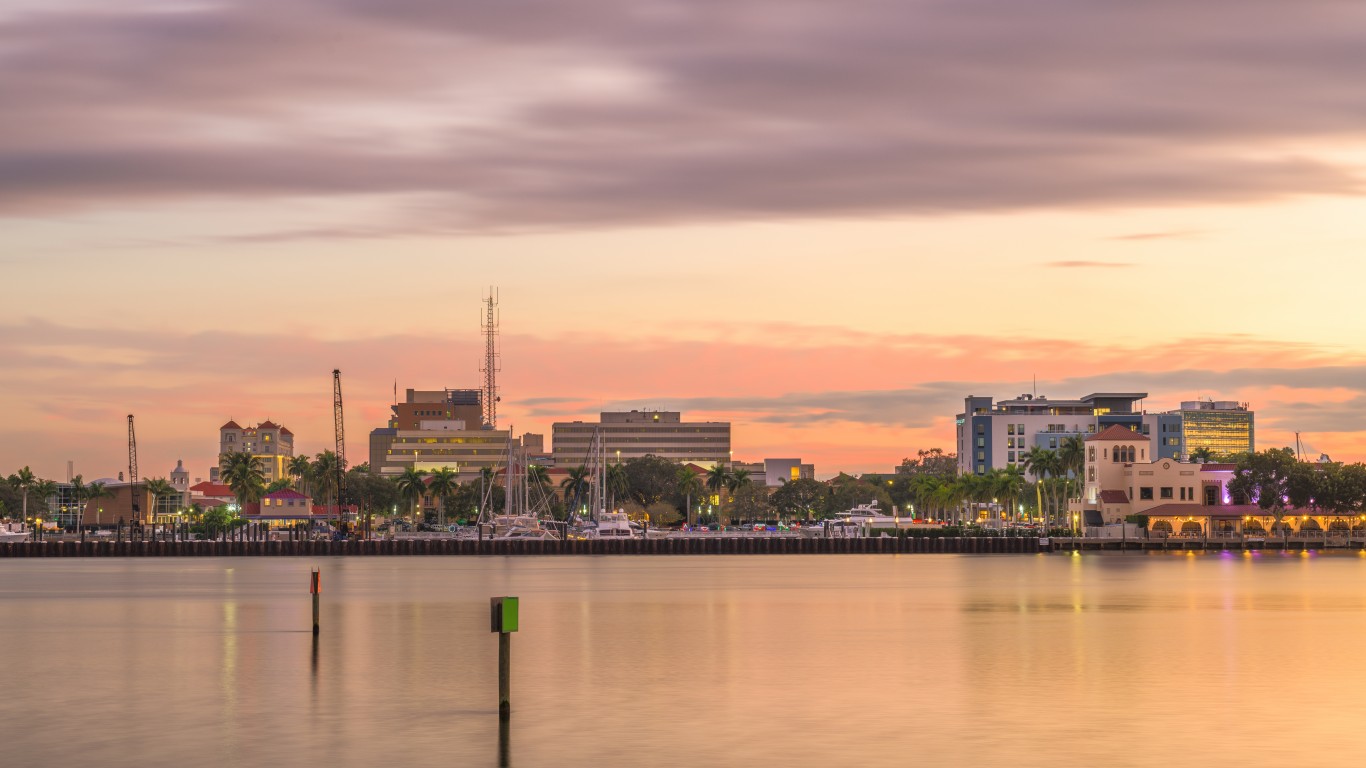
7. Bradenton, FL
> Homes at risk of storm surge: 284,828
> Reconstruction cost value of at-risk property: $57.5 billion
> Metro area population: 836,995
> Recent severe hurricane: Hermine (2016)
With Tampa Bay to the north and the Gulf of Mexico to the west, Bradenton, Florida, is at risk of considerable damage from a hurricane storm surge. Nearly 285,000 area homes with a replacement value of $57.5 billion are at at least moderate risk of storm surge damage. More than 373,000 area homes are at risk of hurricane wind damage.
As recently as 2016, Hurricane Hermine brought heavy rains to Bradenton, flooding many homes and leading to evacuations. Flooding in the area resulted in an estimated $350,000 in damage.
[in-text-ad-2]

6. Fort Myers, FL
> Homes at risk of storm surge: 321,940
> Reconstruction cost value of at-risk property: $67.0 billion
> Metro area population: 770,577
> Recent severe hurricane: Irma (2017)
Fort Myers, located in southwestern Florida, not far from the Gulf of Mexico, is home to nearly 322,000 residential structures at risk of storm surge damage in the event of a hurricane. Additionally, 349,000 area homes are at risk of hurricane wind damage. Total potential reconstruction cost value of these homes is $67.0 billion for storm surge damage and $72.2 billion for wind damage.
Like many other parts of Florida, Fort Myers was affected by Hurricane Irma in 2017. Though by the time the storm reached Fort Myers it had weakened to a Category 2, it brought about widespread flooding leading to evacuations
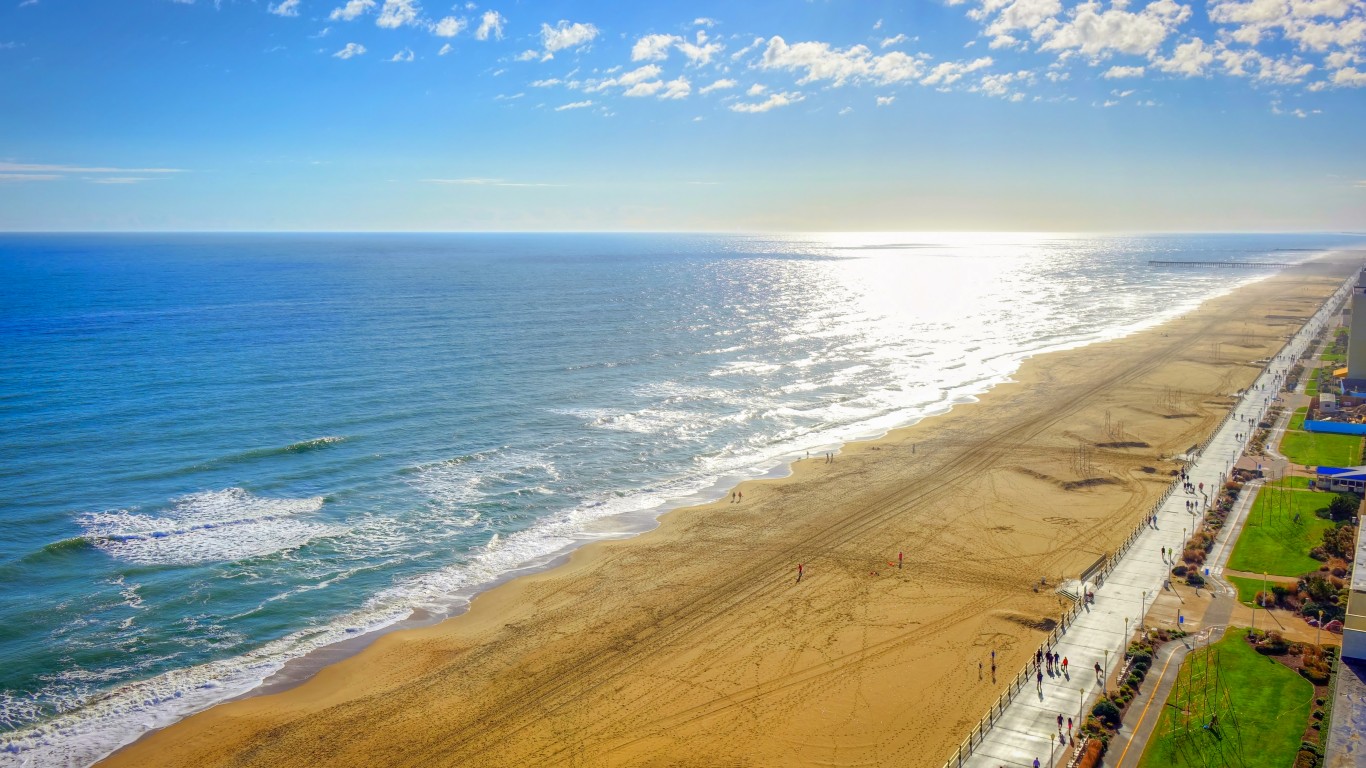
5. Virginia Beach, VA
> Homes at risk of storm surge: 395,653
> Reconstruction cost value of at-risk property: $95.0 billion
> Metro area population: 1,765,031
> Recent severe hurricane: Matthew (2016)
There are nearly 400,000 homes in the Virginia Beach metro area at risk of storm surge damage in the event of a hurricane. Should a hurricane inflict flood damage on those properties, total replacement costs could reach $95 billion. Damage from hurricane winds could be even costlier in Virginia Beach as high winds threaten nearly 580,000 homes with a total replacement cost of $140.6 billion.
As recently as 2016, Virginia Beach was slammed by Hurricane Matthew, which brought about historic flooding, damaging 2,000 buildings and leading to $30 million in damage. Though the city has since invested in new drainage systems, pump stations, and tidal gates, hurricanes, tropical storms, and sea level rise still pose a major threat to homes and businesses in Virginia Beach.
[in-text-ad]
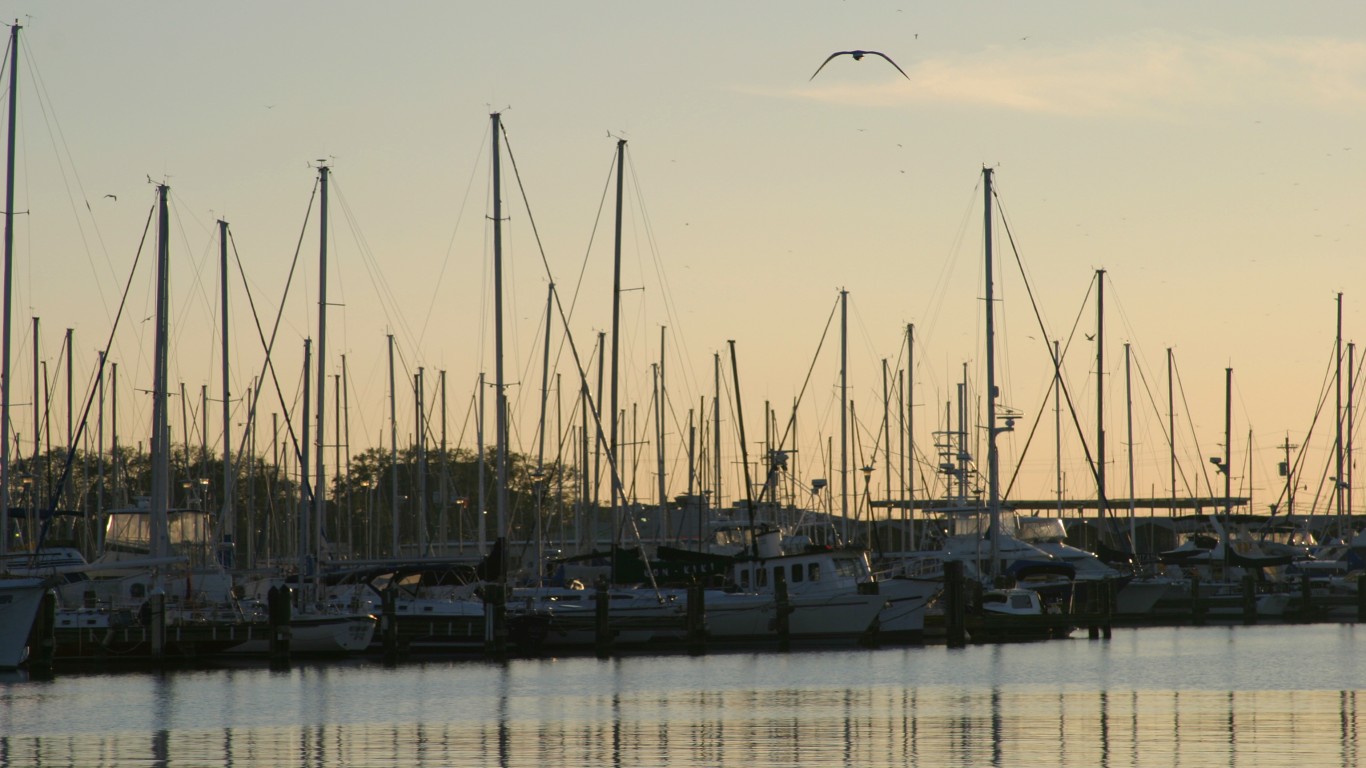
4. New Orleans, LA
> Homes at risk of storm surge: 396,870
> Reconstruction cost value of at-risk property: $100.6 billion
> Metro area population: 1,270,530
> Recent severe hurricane: Katrina (2005)
Though 16 years have passed since Hurricane Katrina devastated New Orleans, the metro area remains among the areas at-risk of the most hurricane damage in the United States. Storm surges resulting from hurricanes threaten nearly 400,000 metro area homes that would cost over $100 billion to replace. Additionally, over 424,000 metro area homes are at risk of hurricane wind damage.
When Katrina hit New Orleans as a Category 5 storm in August 2005, the city’s levees were only designed to handle a Category 3 storm. The largest hurricane to make landfall in U.S. history, Katrina brought a 20 foot storm surge that flooded 80% of New Orleans. Katrina resulted in 1,836 deaths and $81 billion in damage.
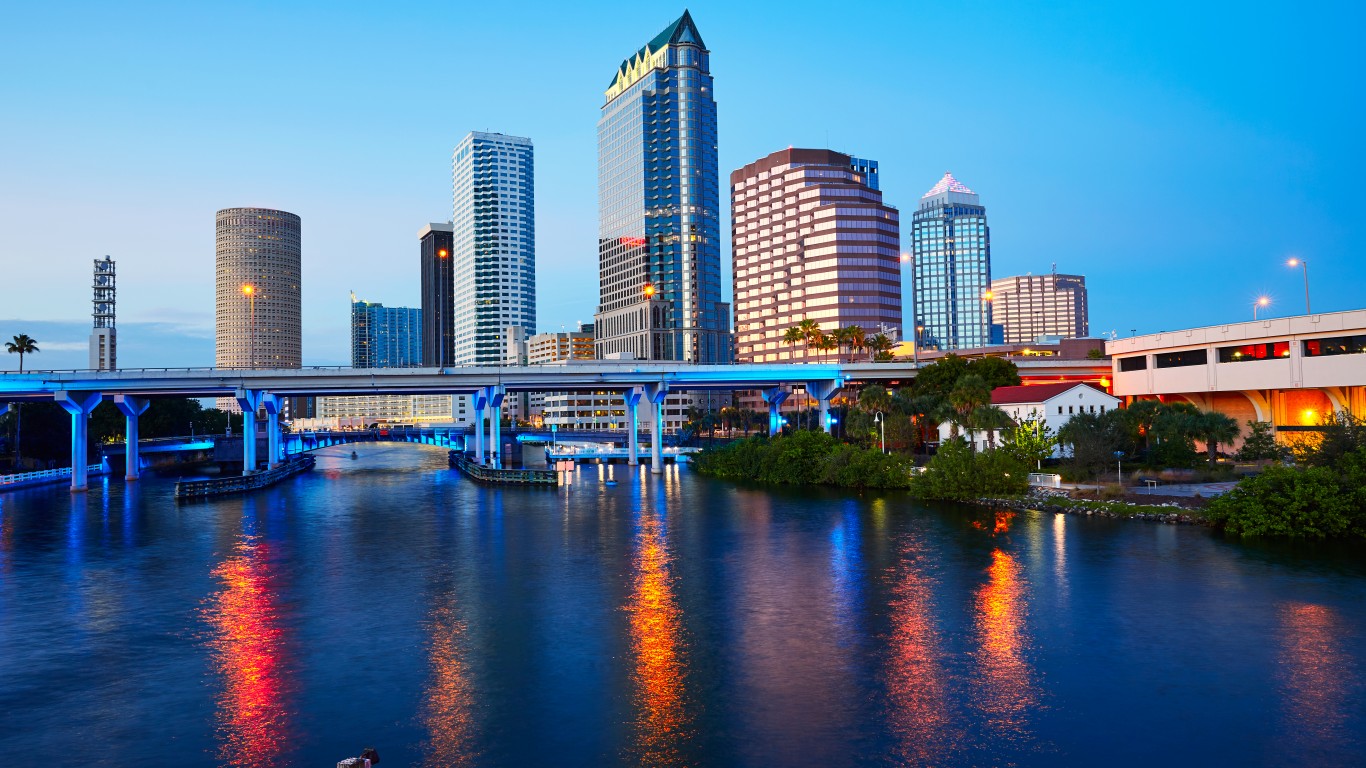
3. Tampa, FL
> Homes at risk of storm surge: 544,433
> Reconstruction cost value of at-risk property: $100.8 billion
> Metro area population: 3,194,831
> Recent severe hurricane: Charley (2004)
Tampa is one of the most populous cities in Florida. Located on Tampa Bay near the Gulf of Mexico, the metro area has over half a million homes — with total reconstruction costs topping $100 billion — at risk of storm surge damage in the event of a hurricane. Additionally, more than 1.1 million metro area homes are at risk of hurricane wind damage.
In 2004, southwestern Florida was slammed by Hurricane Charley, a Category 4 storm. Unexpectedly, the worst of the storm narrowly missed Tampa but still resulted in evacuation orders. Though mild wind and rainfall hit Tampa, the communities of Captiva Island, Cayo Costa, and Port Charlotte to the south were devastated. The storm claimed nine lives in Florida and caused $17 billion in damage.
2. Miami, FL
> Homes at risk of storm surge: 738,994
> Reconstruction cost value of at-risk property: $149.3 billion
> Metro area population: 6,166,488
> Recent severe hurricane: Andrew (1992)
There are 738,994 single-family homes, with a total replacement cost of $149.3 billion, at risk of a storm surge in the event of a hurricane in the Miami metropolitan area. Nearly 2 million area homes with estimated replacement costs topping $406 billion are at risk of hurricane wind damage.
Nearly three decades ago, Hurricane Andrew, a Category 5 storm with sustained winds of 165 mph made landfall south of Miami and devastated the metro area, resulting in over 40 deaths and $30 billion in damage. At the time, it was the costliest natural disaster in U.S. history.
[in-text-ad-2]

1. New York, NY
> Homes at risk of storm surge: 781,823
> Reconstruction cost value of at-risk property: $304.5 billion
> Metro area population: 19,216,182
> Recent severe hurricane: Superstorm Sandy (2012)
New York City does not face threats from hurricanes with the frequency of cities further south on the Atlantic or Gulf coasts. In the event of a hurricane, however, it has 781,823 single-family homes at risk of flood damage from storm surges — more than any other metro area in the country. The total reconstruction costs of those properties is estimated at $304.5 billion. Additionally, nearly 3.4 million homes in the New York metropolitan area are at risk of damage from hurricane force winds.
In October 2012, New York City was devastated by Hurricane Sandy. Though it had weakened to a tropical storm by the time it reached New York, the storm resulted in 44 deaths in the city and damaged or destroyed more than 69,000 homes and caused $19 billion in damage and lost economic activity.
Get Ready To Retire (Sponsored)
Start by taking a quick retirement quiz from SmartAsset that will match you with up to 3 financial advisors that serve your area and beyond in 5 minutes, or less.
Each advisor has been vetted by SmartAsset and is held to a fiduciary standard to act in your best interests.
Here’s how it works:
1. Answer SmartAsset advisor match quiz
2. Review your pre-screened matches at your leisure. Check out the advisors’ profiles.
3. Speak with advisors at no cost to you. Have an introductory call on the phone or introduction in person and choose whom to work with in the future
Thank you for reading! Have some feedback for us?
Contact the 24/7 Wall St. editorial team.
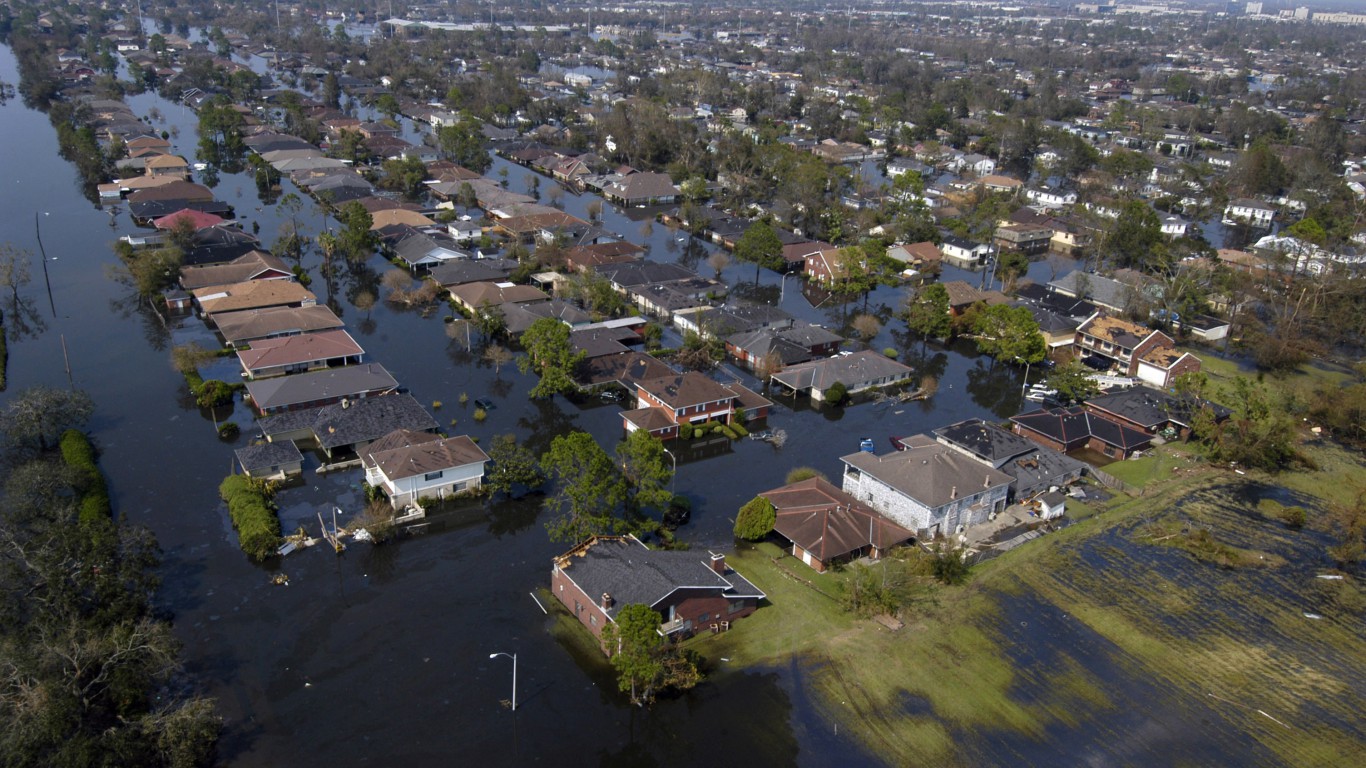 24/7 Wall St.
24/7 Wall St.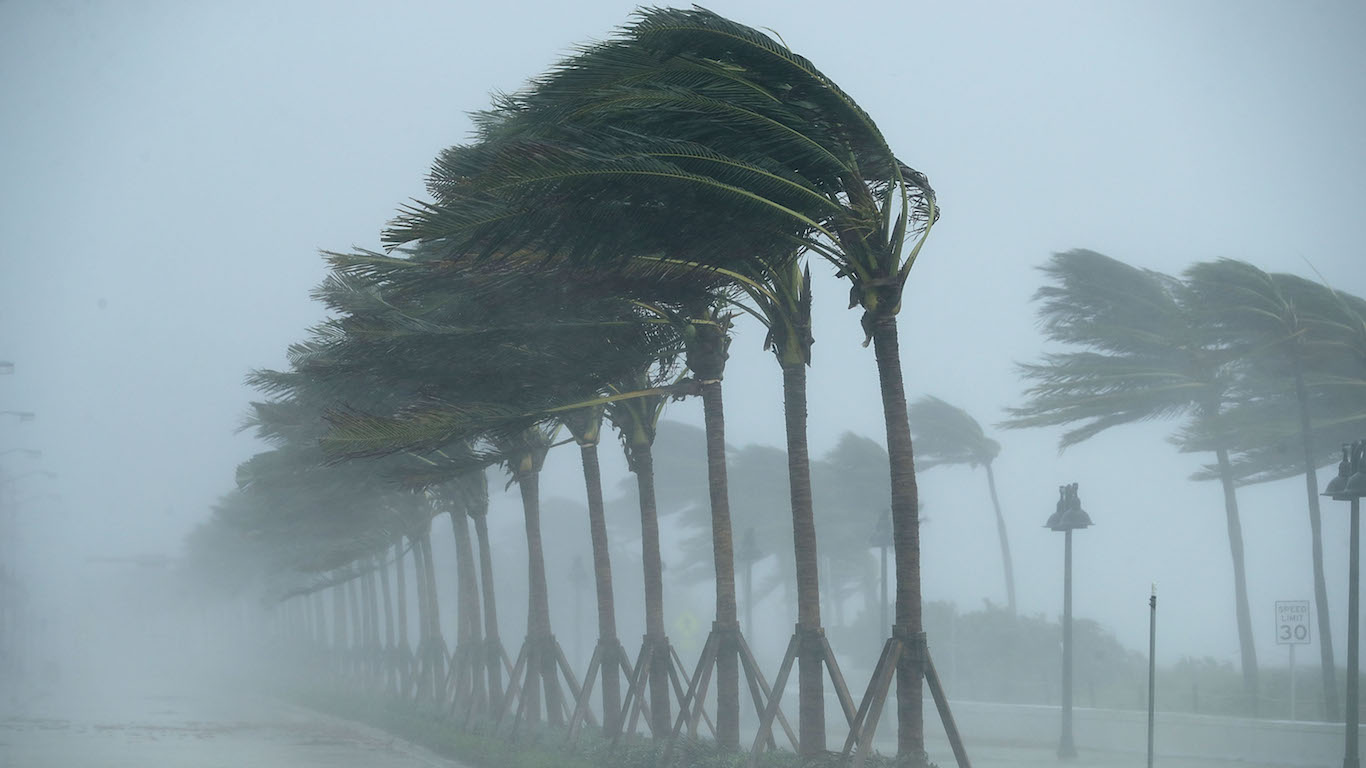 24/7 Wall St.
24/7 Wall St.